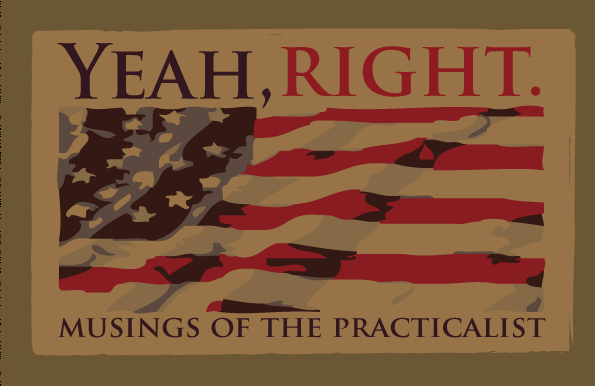To Bato
Thank you, Bato, for your comments regarding my thoughts regarding religion. While I may agree with your first point, regarding "knowing sinners", it does not change the analysis. One would be hard pressed to find someone who lives the tenets of their life philosophy to exactness. However, what one perceives to be truth influences the way one approaches life. For example, one who believes that the atonement of Christ covers him regardless of his sins, so long as he has "accepted Christ into his heart" at some point prior to dying might approach life more haplessly than one who believes that the atonement applies only so far as he is making a conscious effort to model his life after Christ. It does not mean that he will not sin, which is to say that he will consciously do something he knows to be against the will of God. But he will be less likely to follow thru with many conscious sins that the former might. (Please do not take this as a blanket assumption for either case.) To go a little farther, the former might be more willing to compromise his values in the political arena, where the latter might be more cautious.
You can see, then, if you were to broaden to this to the differences between those who believe in God and those who do not, how one's perception of truth influences his actions. It does not dictate his actions, but merely influences them.
As to your second point, the trouble that the founding fathers had with "the Church" regarding its role in government, was its tendency to exclude all others, which leads to persecution and restriction of others' liberties. While they might have had their personal problems with religion, they generally accepted that a man's religion is his own business, and were not generally adverse to its existence. Their intent with the first amendment was to prevent this exclusion of religion by other religions. Which brings me back to the original intent of my post to which you responded. The religion of "non-religionists" finds itself to be beyond the reach of the first amendment in its attempt to exclude other religions from the public sector.
I will address your third point when I have some time to think about what I was thinking about at the time I wrote that. It was probably in response to something I had read recently, but I don't know. I just don't remember the context right now.
I am glad to have gotten a response regarding this, and to have some challenge to my thinking. It helps me to better formulate my thoughts.








1 comment:
As I'm not a constitutional scholar I will defer to your explanation for the purpose of the 1st amendment being to prevent the exclusion of other religions, although I don't believe that I am offbase in my assumption that the Founding Fathers were distrustful of mixing organized religion with government. And maybe we're saying the same thing from different persepectives.
I do not agree with your theory that a person's personal belief system can be considered a "religion". But to debate this we would only be arguing definitions or "religion" and I don't know how this could be of any value.
I guess what would be more productive is to argue concrete examples of the non-relgious imposing their "religion" on the religious. I see what you're saying, but arguing in such an abstract way won't really get to the practical application of your theory, which is what your blog seems to be all about.
So how about some examples?
Post a Comment